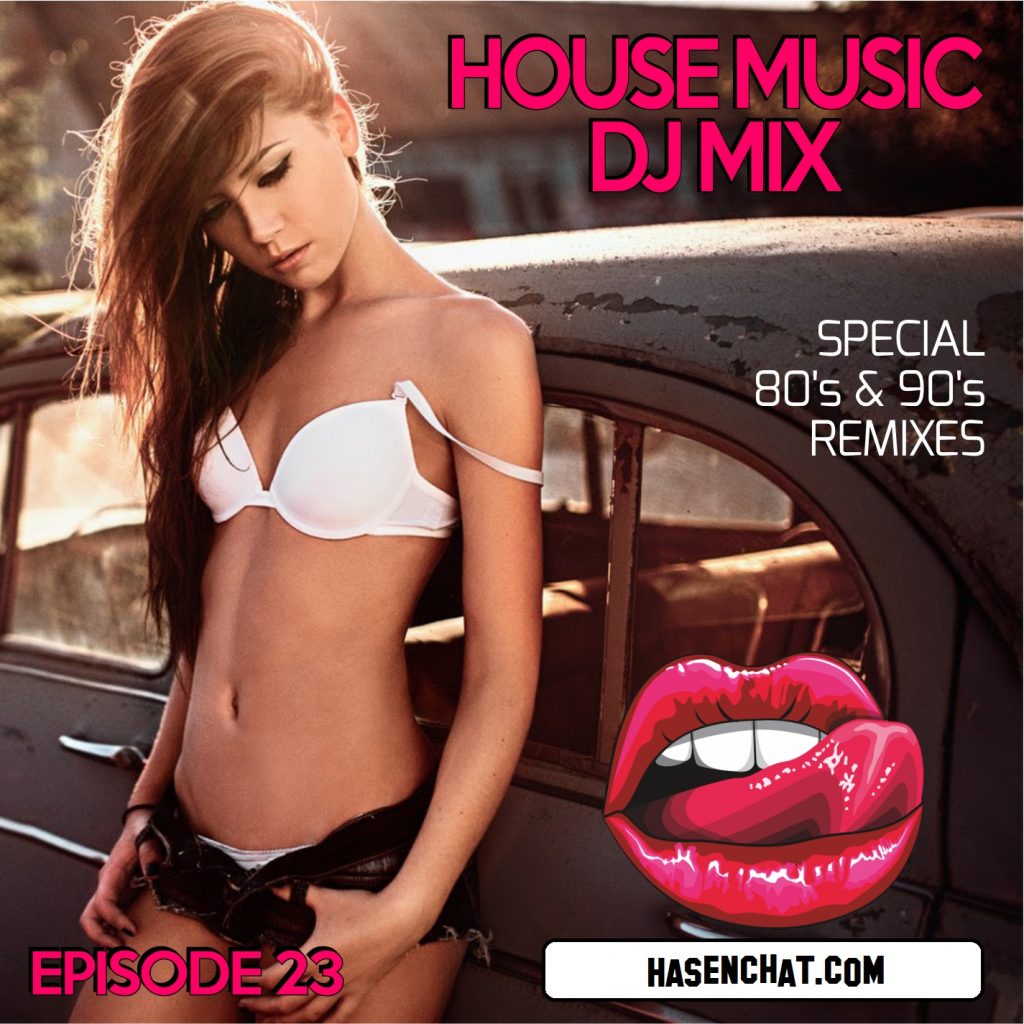
01) Ace Of Base – All That She Wants (Abhishek Negi Remix)
02) Snap – The Power (DJ Savin Remix)
03) Everything But the Girl – Missing (DJ Villain Remix)
04) Tears for Fears – Shout (DJ Savin Remix)
05) George Michael – Freedom (RMM’s London Olympic Remix)
06) Robin S – Show Me Love (Namatria & Johny Saver Remix)
07) Simply Red – Sunrise (ItaloBros Remix)
08) Pet Shop Boys – West End Girls (Grum Remix)
09) Deee-Lite – Groove Is In The Heart (Gigamesh Remix)
10) INXS – I Need You Tonight (Natema Remix)
11) Duran Duran – Save a Prayer (Groove Delight Vocal Remix)
12) David Bowie – Let’s Dance (The Penelopes Remix)
13) Eurythmics – Sweet Dreams (Steve Angello Remix)
14) Dennis Edwards feat. Siedah Garrett – Don’t Look Any Further (After Head Remix)
15) Michael Jackson – Billie Jean (DJ Mix Remix)
Tags: House, Vocal House, Classics, Remixes, 80s, 90s, Podcast, DJing, DJ Set, DJ Mix, Live DJ Set, Live DJ Mix,
Time: 80 Min
House music is a genre of electronic dance music (EDM) that originated in Chicago in the early 1980s. It has since become one of the most influential and enduring styles of electronic music worldwide. Here are some key features and aspects of house music:
- 4/4 Beat: House music typically features a 4/4 time signature, with a consistent and steady beat that is easy to dance to. The kick drum plays a prominent role, providing a thumping and driving rhythm.
- Soulful and Funky Grooves: House music often incorporates elements of soul, funk, and disco, giving it a groovy and danceable feel. It relies on syncopated basslines, hi-hats, and percussion to create infectious rhythms.
- Vocal Samples: Many classic house tracks include vocal samples or full vocal performances, which can range from soulful and uplifting to more abstract and repetitive. These vocals are a significant part of the genre’s identity.
- Synthesizers and Keyboards: House music makes extensive use of synthesizers and keyboards to create melodies, chords, and electronic textures. These elements contribute to the genre’s melodic and harmonic richness.
- Subgenres: House music has diversified into various subgenres over the years, including deep house, tech house, progressive house, and more. Each subgenre has its unique characteristics and sound.
- Origins: House music was born in Chicago’s underground clubs in the early 1980s, with pioneers like Frankie Knuckles, Larry Heard, and Marshall Jefferson. It quickly spread to other cities and countries, becoming a global phenomenon.
- Global Influence: House music has had a profound influence on the evolution of electronic dance music and has inspired countless producers and DJs worldwide. It played a pivotal role in shaping the rave and club culture of the late 20th century.
- Evolution: House music continues to evolve, and contemporary house artists blend elements from other electronic genres, creating hybrid styles and pushing the boundaries of the genre.
- Club Culture: House music is closely associated with club culture and nightlife. It’s often played in clubs and at dance music festivals, where DJs mix and remix tracks to create a seamless and energetic dancefloor experience.
- Iconic Tracks: Some of the iconic tracks and artists in the house music genre include “House Nation” by House Master Boyz, “Show Me Love” by Robin S, “Around the World” by Daft Punk, and “I Want to Thank You” by Robin S, among many others.
House music remains a beloved and influential genre, and its diverse subgenres continue to thrive in both underground and mainstream electronic music scenes. It has a timeless quality that continues to resonate with music lovers and dance enthusiasts around the world.